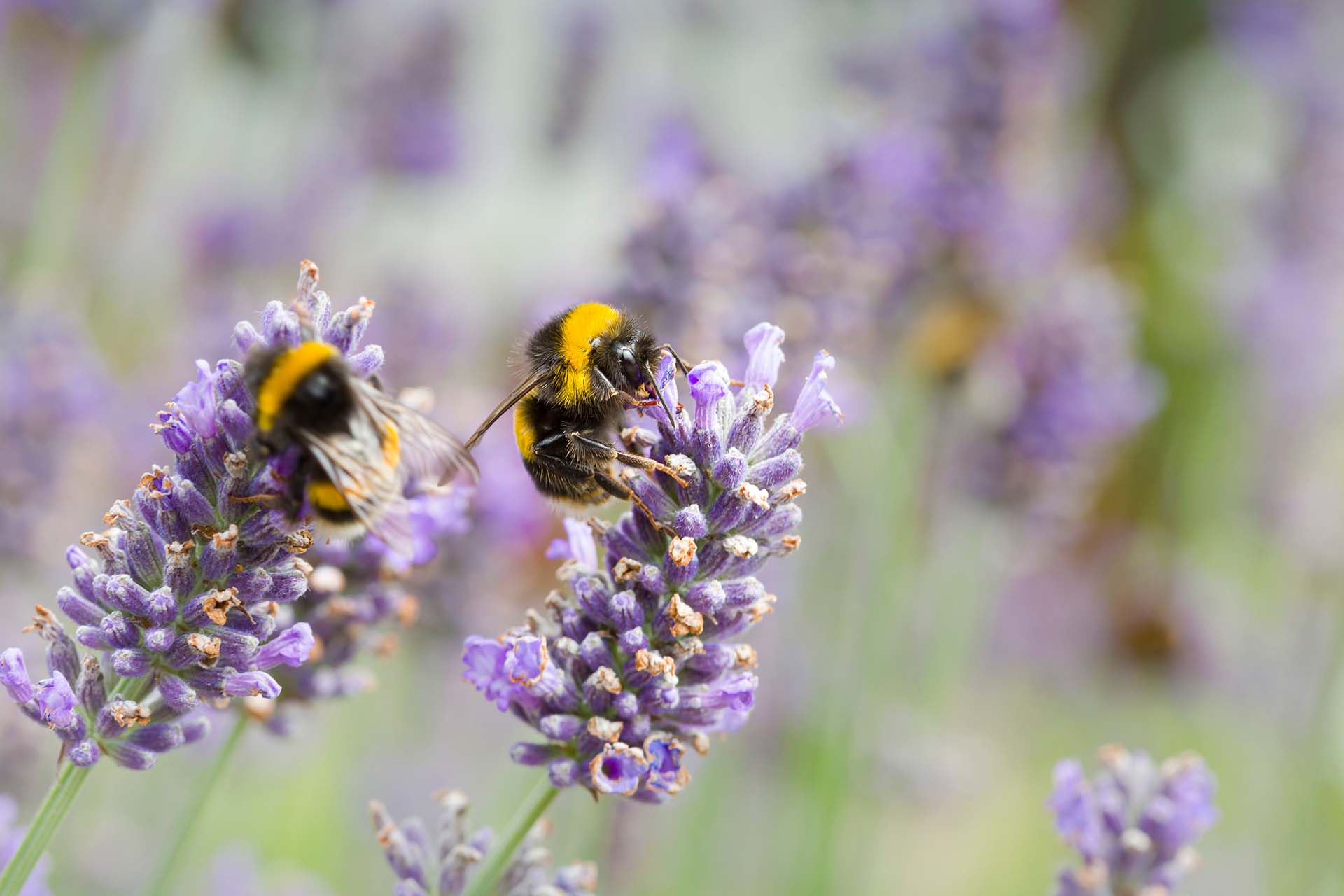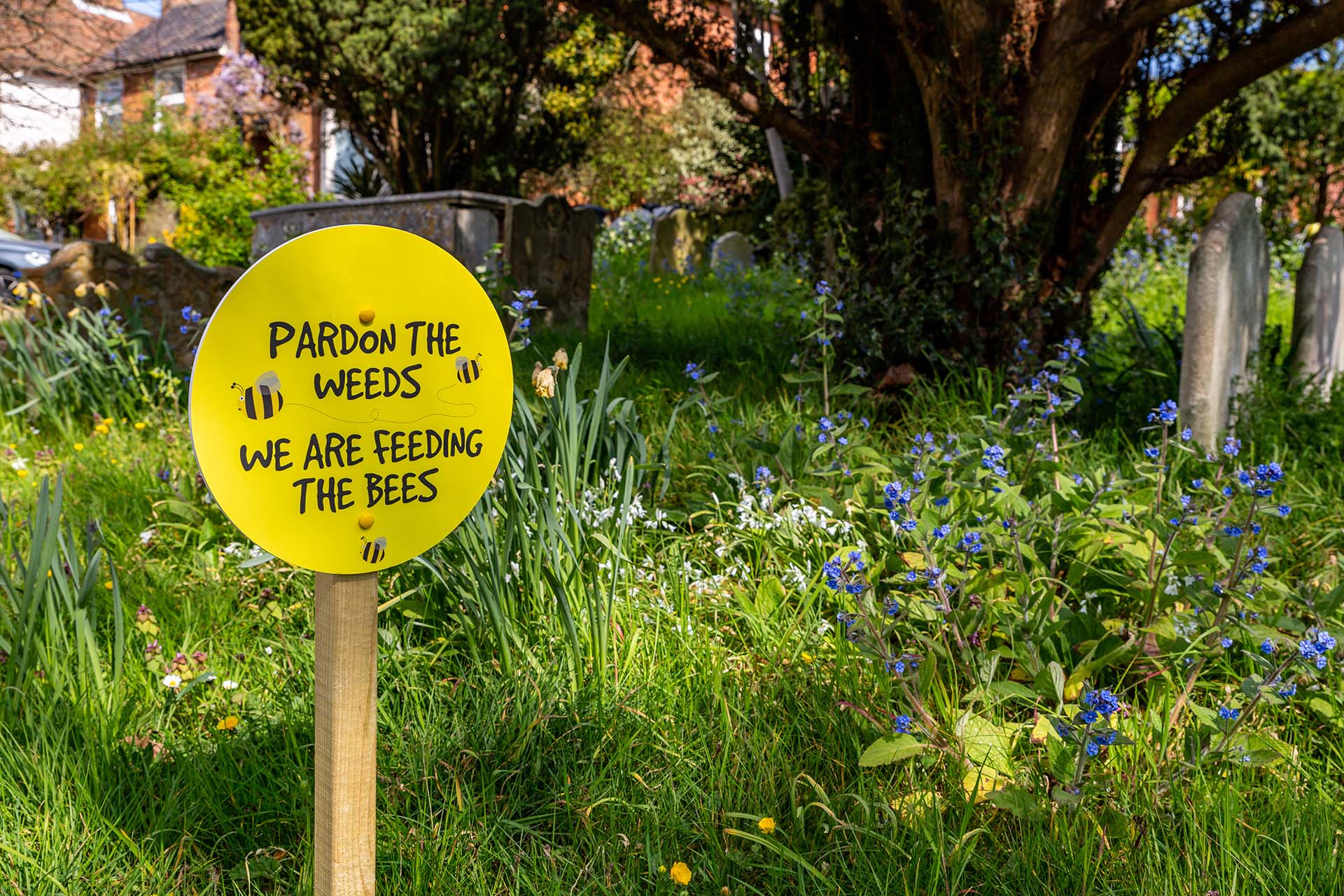Why Are Bees Important?
Bees are a sign that spring is in the air and the blooms are starting to come out and in the UK we have over 250 species of bees with 24 types of bumblebees. Did you know, though, that bees are amongst the most important insects on the planet? That might seem a little dramatic, but it is true so read on to understand why bees are so important.
First things first, let’s have a look at the difference between bees and wasps as they can often look the same, but are very different insects. Bees tend to be more muted in their colouration with light brown/yellow-brown bands on their abdomen whereas wasps are much more vibrant with distinct yellow/black bands. Bees also tend to be a bit hairier than wasps to allow them to gather pollen and wasps tend to be shiny. They are both important, but for different reasons. Wasps are predatory and control the population of pests such as greenfly and spiders. bees are pollinators and it is this aspect of their behaviour which makes them so vital.
Why Are Bees Important? Bees as Pollinators
We’ve all seen bees flit from flower to flower, dip inside and then carry on their journey. What this fascinating insect is actually doing is feeding on the nectar that the flower is producing, a high energy food source for the bee. If you look closely, what you will see is them rubbing against the long, slender stalks inside the flower head as they collect the nectar. These are called the stamen and are essentially the male part of the flower. The stamen produce pollen which attaches itself to the bee’s furry legs and body. As the bee visits a second flower some of the pollen falls off into the centre of the flower head where the female parts of the flower are found. These are called the stigma. Once the pollen enters the stigma it finds its way to the ovules and fertilises the eggs there to create seeds which then grow into more crops.
Over 80% of plants have evolved to be pollinated by hard working bees and butterflies and without these insects pollination would stop. The impact of this is that a large amount of the food that we grow such as broccoli, asparagus, apples, tomatoes to name a few, would simply not grow without farmers manually intervening, which has been estimated to cost around £1.8 billion per year in the UK alone. Bees serve a vital function in our food chain and without them there would be food shortages as well as significant increases in food prices.
Add to this pollination service the honey that bees produce, which has excellent medicinal properties, it is clear to all why bees are so important.
Bees are in Decline
Bees are declining though due to pesticide use and habitat loss, climate change, parasites and disease.
How to Help Bees
One of the best ways to help bees is to stop using pesticides in your garden, if you do use them, do not spray open flowers. Next, think about habitat, why not create a bee friendly garden with a bee shelter. If you would like to make your own bee hotel, this article from the Woodland Trust has a great guide.
Make sure to plant plenty of flowering plants that bees love, there is a great guide from the RHS which lists what plants attract pollinators like bees, alternatively you can help bees by not cutting your lawn as much and allowing the flowering weeds to bloom. Finally having a bee water station in your garden will help. Using any shallow container, add a small amount of water and some pebbles, the pebbles will give the bees a safe place to drink from.
Bee Nest In Your Garden
We do appreciate though, that not everyone is enamoured with the idea of having a bumble bee nest in their garden or property. If you do find a nest and it isn’t really disturbing you, then our advice is to simply cordon off the area and leave it alone. Bumble bee nests will only be present for a relatively short period during the spring and summer, and if left alone, tend to be pretty relaxed guests. If you don’t feel comfortable with this, then please do give us here at iX5 a call and we will come and assess the situation and, if possible, safely relocate the bees. If you have a honeybee swarm arrive or honeybees take up residence in your property, we can also assist with this. At iX5 Pest Control we don’t eradicate bees but look for other solutions such as relocation and rediverting flight paths. The last thing we want to do is destroy these allies, upon whom so much relies.


